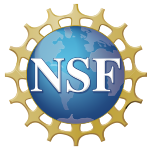Microelectronics & Nanomanufacturing Certificate Program
This program led by the Center for Nanotechnology Education and Utilization at Pennsylvania State University, in collaboration with 2-year and 4-year institutions [Rio Salado College and Arizona State University], will support members of the U.S. military, veterans, and their family members to gain the knowledge, skills, and abilities (KSAs) to move into the semiconductor and microelectronics workforce.
The program will:
- adapt and implement the content of the pilot and offer a Microelectronics and Nanomanufacturing Certificate Program (MNCP) supported by community and technical colleges and universities
- continually assess and adjust the content in consultation with industry for skillset needs
- work to secure the endorsement of the MNCP by departments of veteran services for different military branches
- elevate the role of community and technical college faculty in the delivery of the MNCP minimizing the dependence on the research universities.
This program is structured as follows:
- 12-week Cohort each fall and spring semester
- Hybrid model of online lectures
- In-person labs held at Arizona State University
- Industry partnerships, meetings, and site visits.
MNCP For Veterans Community
The InScribe community for the MNCP is designed to share resources with cohort participants, interested parties, and the community. Public resources will be provided for anyone interested in learning more. Cohort participants and alumni have a private space to collaborate while in the program and ask questions of the local subject matter expert.
NSF Grant #2229983
NSF Grant #2229983

The United States (U.S.) has been experiencing a semiconductor chip shortage due in part to the pandemic. A strong nanomanufacturing workforce will enable the U.S. to be competitive in the global economy and will support the U.S. leadership in microelectronics and semiconductor technologies. This project led by the Center for Nanotechnology Education and Utilization at Pennsylvania State University will support members of the U.S. military, veterans, and their family members to gain the knowledge, skills, and abilities (KSAs) to move into the semiconductor and microelectronics workforce. Members of the collaborative include 2-year and 4-year institutions, microelectronics companies, and the Global SEMI Trade Association.